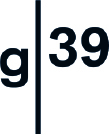Apropos of nothing
1 November - 13 December 2003

Bedwyr Williams
The artists in ‘Apropos of Nothing’ appear to have few discernible links between their practices. At face value they all appear to operate in different and idiosyncratic spheres of communication and expression. What they do share however, is the ability to take elements from the real world, idle moments or discarded objects, and transform them.
In the window Proposal for the Redevelopment of Withewood Comprehensive Sports Field, 1974 by Richard Higlett presents a level but chaotic playing field where all ‘goals’ are appropriately inappropriate. This hijack of precise architectural models and the beautiful game creates a minefield of negotiation and consideration for its players. Competitiveness and rigid rule structures become usurped by anarchic and more creative game play.
For Schadenfreude, Bedwyr Williams takes the ‘well done’ cap-and-gown announcements from a local paper and uses them to spell out the word in the gallery. His commentary on the established parameters of Welsh-ness and success is typical of his work. He constantly appears to be in a state of questioning and rediscovering the world around him and we are presented with a series of disparate images and remnants taken from his surroundings on his return to Wales. Reinforcing this outsider’s point of view is a replica mannequin Bedwyr, sitting on the floor listening to local radio and looking back at his work, still dressed in the clothes that date back to his re-entry into Wales - the prodigal son returning. The mannequin is clutching a series of drawings, a fictional shoe collection featuring the Kyffin and the Bala, the bastions of Welsh art at the time of his return taking the place of the Adidas stripes or Nike tick. Williams continues this line of thinking with two interventions on the top floor. Two Welsh art tomes are displayed like commemorative plates, but their titles are spiced up a little, changing the viewer’s expectation of what is between the covers.
On the first floor, Plastic Rucksacks Michael Murray also uses discarded or insignificant items in his work but they are played to a different tune. He uses unconventional materials to create seemingly alchemical experiments with the leftovers of everyday life. A block of lard melts under the heat of a lamp and through a series of pulleys and ropes it raises and lowers plastic rucksacks into a beam of light. The magnificence of blue-night and yellow-day is misappropriated to create a cycle of life and death with twenty-four kilos of lard.
On the top floor we can hear the soundtrack of an office before we see Richard Higlett’s The Interludes, but it reveals itself as far from bustling. Higlett investigates those moments when the brain is idle but still creative. On a multi-screen video work he assembles the subconscious tics and habits of office workers to create a rhythmic composition of displacement activity. The dreams and aspirations of the drone are released to powerful if unknowing effect in a musical rebellion. The impatient tapping of fingers drums out Rossini’s Overture to William Tell; a nail file becomes the sweep of a violin bow as it rasps Vivaldi’s Spring from the Four Seasons. A pen clicking becomes Prokofiev’s Montagues and Capulets from Romeo and Juliet and nails tapping on a mug are transformed into Morning from the Peer Gynt Suite by Grieg.
As if this reminder of idling away time wasn’t enough, as we turn to go back down the stairs a Bedwyr Williams clock reminds us of the amount of time we have just spent looking at the work. An ominous phrase in Welsh beneath it roughly translates as only the guilty flee without being chased.
Throughout this exhibition the artists approach the everyday and take it to another level. ‘Apropos of nothing’, their works become propos of something. Nothing is about nothing and while their beginnings are varied their use of humour and the sideways look at the things they come across succeed at both engaging and perplexing the viewer.
- The following Artists were in this show:
- Bedwyr Williams
- Richard Higlett
- Mike Murray












